| Home > News > LATEST NEWS |
On June 5, 2019, the Third CAST Development Theory Seminar took place in Beijing. The seminar was attended by Xu Yanhao, deputy secretary of leading party members group, vice president, and member of the secretariat of China Association for Science and Technology (CAST), who gave an opening address; Li Hong, vice president of CAST and chair of the decision-making advisory committee of the standing committee of the CAST; Yang Wenzhi, head of the planning and finance department of the CAST; WU Shanchao, deputy head of the department of investigation and publicity of the CAST; Luo Ying, secretary of the leading party members group and executive vice chair of Jiangxi Association of Science and Technology; Zheng Qingshun, secretary of the leading party members group and full-time vice chair of Guangdong Association of Science and Technology; Wang Heqing, secretary of the leading party members group and vice chair of Chongqing Association of Science and Technology; Chen Hongying, secretary of the leading party members group and chair of Ningxia Association of Science and Technology; Zhang Yongxiang, president of Chinese Pharmacological Society; and Shi Nan, executive vice president and secretary-general of China Association of City Planning, as well as 120 representatives of regional associations of science and technology, learned societies, universities, research institutions, and enterprises, and personnel of institutions including the National Academy of Innovation Strategy (NAIS). The opening ceremony was presided over by Ren Fujun, president of the NAIS.

In his opening address, Xu Yanhao emphasized having a full understanding of the great importance of conducting theoretical research on the development of the CAST. In conducting theoretical research on the CAST’s development, he pointed out, it is important to 1) aim at the core issue by having the work politically guided and serving the central task of economic development and the overall interests of the country; 2) engage R&D personnel and build a strong R&D workforce; 3) continuously strengthen the CAST by leveraging reform, coordination and innovation; and 4) promote theoretic research on the development of the CAST by availing of the initiative to develop new-type science and technology think tanks. He called on the CAST organizations at various levels to summarize experience, reflect on problems, identify underlying factors, share suggestions on the development of the CAST, and position themselves as actioners as well as researchers of the development of the CAST.
The seminar was held under the theme of “CAST for Empowering China’s Rise as a World Power in Science and Technology”. Attendees had in-depth discussions of the continuation, innovation and development of the CAST and issues facing it with the focus on the development of the CAST in the new era and how to comprehensively advance the strategic " 1-9•6-1" layout of the CAST and better play its role. The seminar featured a series of keynote presentations given by invited speakers, including "Build the CAST as a New-type Think Tank with Chinese Characteristics" by Li Hong, "The CAST's Development Strategy in the Context of China's Drive to Become a World Power in Science and Technology" by Yang Wenzhi, "How An Ecosystem Approach Can Increase the CAST's Organizational Effectiveness" by Wang Heqing, "Evolving Needs of the Government and Society for the CAST" by Zheng Qingshun, "Ways for Local CAST Organizations to Perform the CAST's Serving Functions" by Luo Ying, "Community with a Shared Future for Mankind and the Mission of R&D Personnel" by Prof. Ren Dingcheng at University of Chinese Academy of Sciences, "Internationalization of Chinese Pharmacological Society and Reflections" by Zhang Yongxiang, and "Platform Oriented to Needs and Empowered by Innovation" by Shi Nan. The presentations with wide-ranging subjects, which encompassed theoretical explorations, summarization of practices, and insightful analysis of policies and struck a chord with the audience, made the seminar an exemplar of subsequent seminars of the CAST. The seminar was held in a constructive and lively atmosphere.
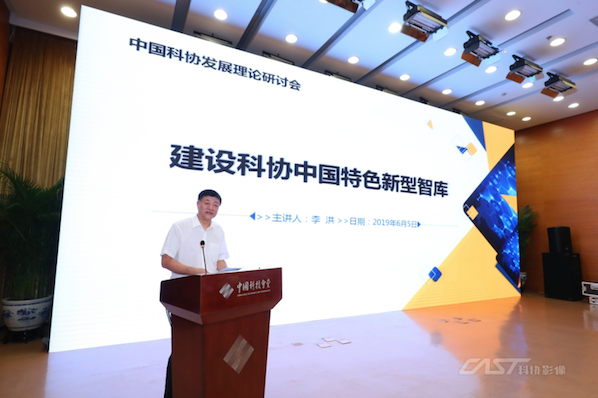
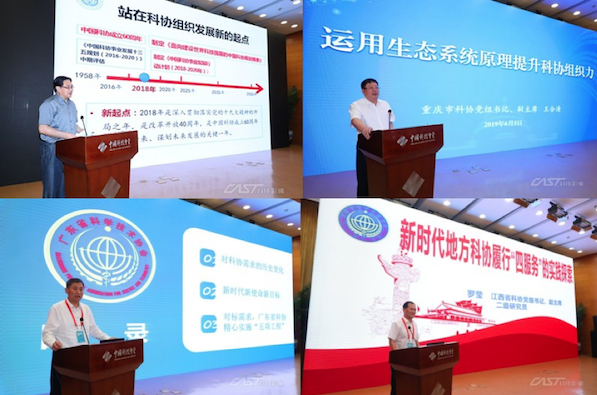
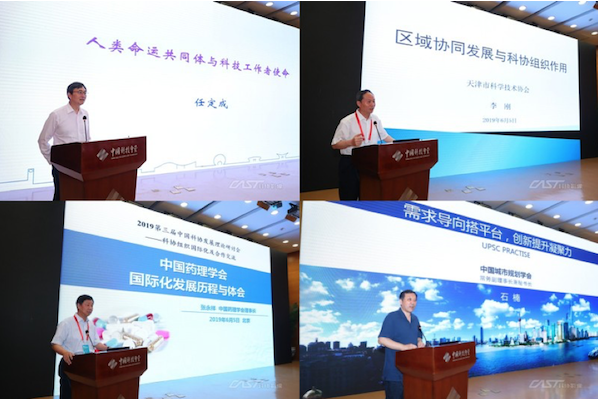
This seminar called for papers on eight topics. Among the papers received, 59 were selected as distinguished papers through preliminary evaluation and review of experts and recognized with certificate of honor. Four authors of extinguished papers, including Prof. Pan Jianhong at University of Science & Technology Beijing, Hu Guojun, deputy head of the academic affairs department of Zhejiang Association of Science and Technology, Hu Xiangming, research fellow at Heilongjiang Association of Science and Technology, and Prof. Cui Weijun at Nanjing University of Information Science & Technology, exchanged ideas at the seminar.
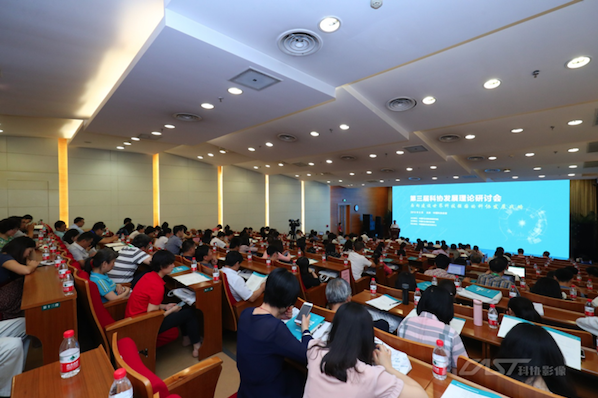
The seminar was the first seminar on the subject convened after three major conferences on science and technology and the 19th CPC National Congress, and also the first after the 60th anniversary of the CAST, and was a milestone meeting with great significance, salient theme, and contemporary relevance.
The seminar received wide-ranging response and enthusiastic participation. Leaders of the CAST, its provincial branches, and learned societies nationwide attended the seminar and gave reports. It was attended by four secretaries of leading party members group and ten vice presidents and secretaries-general representing 13 provincial associations of science and technology, and secretaries of leading party members group and vice presidents representing three sub-provincial associations of science and technology, in addition to other provincial associations of science and technology which not only sent representatives to the meeting but also recommended papers to the meeting. The distinguished papers were approximately three fourths first-authored by personnel within the CAST system and approximately one fourth by R&D personnel outside the CAST system, including personnel in leadership as well as grassroots positions.
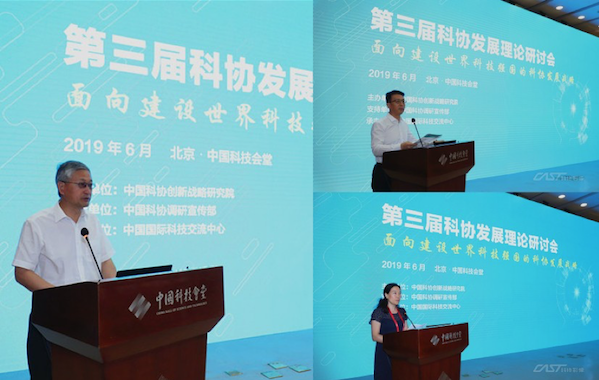
The seminar was sponsored by the NAIS and supported by the survey and publicity department of the CAST. Zhao Lixin, vice president of the NAIS, presided over some sessions of the seminar. Deng Fang, member of the standing committee of the party committee of the NAIS, announced decisions on the recognition of the distinguished papers.